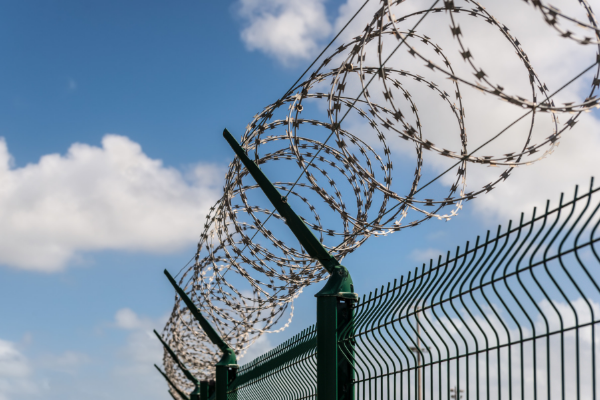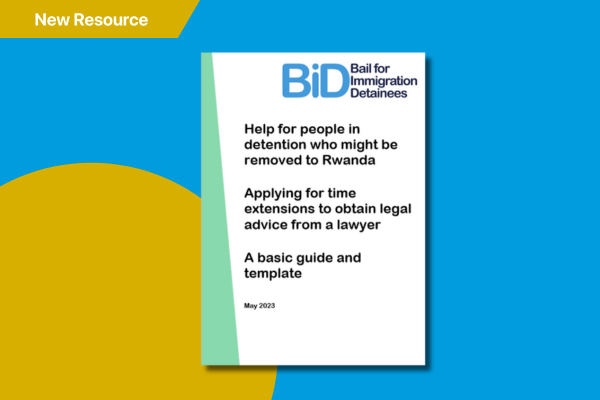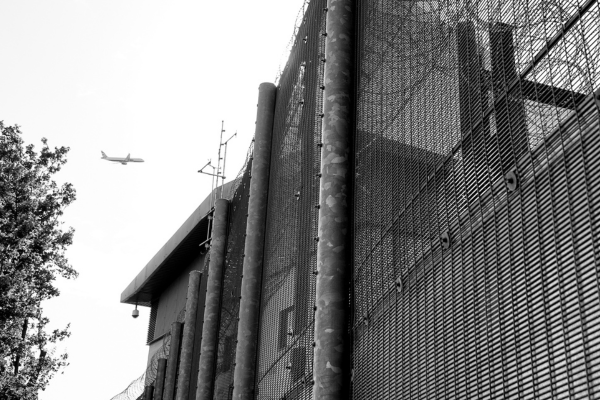Steps need to be taken to end the use of administrative immigration detention. There is a crisis of self-harm and suicide in immigration detention and that has been ongoing for a number of years. The scale is deeply alarming – last year the Guardian revealed that between April and June 2018 there were on average two suicide attempts every day .
People who enter detention are likely to be vulnerable and may well be victims of torture or trafficking and may have poor mental health. Immigration detention can induce serious distress and mental illness even in previously healthy people. People are detained without being given adequate reasons or opportunity to make representations as to why they should not be detained, without knowing when they will be released and whether they will remain in the UK or be returned to countries that they fear or have no connection to. As a result many feel hopeless and desperate.
There are meant to be safeguards. Rule 35(2) of the Detention Centre Rules requires the medical practitioner in an IRC to inform the Home Office of any individual suspected of having suicidal intentions. The Home Office should then consider whether detention continues to be proportionate. However, reports written under rule 35(2) are barely used – data obtained under the Freedom of Information Act revealed that in the year 2017 there were more suicides in Morton Hall IRC than rule 35(2) reports. In addition, the rule 35 process does not operate for those detained in prisons under immigration powers and there is no equivalent safeguard.
When people commit suicide the Home Office seems to go to great lengths to cover up the evidence. Former Prisons and Probation Ombudsman Stephen Shaw, who was commissioned by the government to produce two reports into immigration detention was questioned on the matter by the parliamentary Home Affairs Select Committee and accused the Home Office of keeping self-inflicted deaths in detention a ‘state secret’. He said “There’s too much secrecy generally – I want to see it opened up. I think it’s outrageous that there should be any question other than that those figures are made routinely available. ” At an inquest into the self-inflicted death of Michal Netyks in immigration detention in 2017, the Senior Coroner accused the Home Office of ‘manipulating statistics’ after it emerged that records had been deleted by senior management.
That was a particularly tragic case. Netyks had served a short prison sentence in HMP Altcourse and was told on the day of his release that he was going to continue to be held in prison under immigration powers. He committed suicide hours later. Yet Shaw’s 2016 report on the welfare of vulnerable adults in immigration detention had predicted this very tragedy. He found that the practice of serving decisions to detain at the last minute in this way had been criticised by staff at different prisons ‘not least in terms of the potential risk of self-harm ’. The Coroner in Netyks’ inquest also suggested the lack of legal advice in prisons for foreign nationals facing deportation was a contributing factor to his death.
There have been many other deeply saddening examples, including that of Marcin Gwozdzinsk who committed suicide in Harmondsworth Detention Centre on 3rd September 2017. It emerged during the inquest that Marcin had been placed under suicide monitoring by staff, only for a review to conclude that his distress was the result of toothache and he was no longer a risk .The review had lasted 9 minutes and was conducted by detention staff with no input sought from healthcare staff . The following day Marcin called an ambulance and asked for them to come and save his life, but the ambulance never came as they were told by detention centre staff that Marcin had been making ‘hoax calls’. He committed suicide the next day.
A written statement from 59 of his friends in immigration detention blamed the Home Office for his death. The letter, quoted in The Guardian states that “For a long time he [Gwozdzinski] asked officers, psychologists and doctors for help. He was ignored, many times he asked for help. Therefore myself and other detainees are very anxious and depressed about the situation. It is a disgrace that nobody has been [made] accountable for such poor care. We are human beings not animals.” Meanwhile his family claimed to have been kept in the dark about the details of his death, which they suspected was preventable.
This issue is closely connected to problems of ethos and attitude at the Home Office which were exposed to the public during the Windrush scandal. There is a culture of disbelief and often an outright nasty hostility to those who are in detention, and an attitude towards vulnerability that is misguided and cruel. There are countless examples we could use to illustrate this but perhaps the most powerful is the case of a former BID client who was on constant suicide watch after 3 suicide attempts, and was told by the Home Office in a decison made under the Adults at Risk policy, that “you are the origin of this decline and… the increased isolation that you feel is an unintended consequence of your current behaviour ”.
We should not be surprised by the scale of self-harm and suicide in immigration detention. It is a brutal ordeal which causes anguish and despair for an already highly vulnerable group. There are many elements of the current system that contribute to this ongoing scandal: that the Home Office detained 24,000 people in the last year; that safeguards for vulnerable adults have been shown time and again to be failing; that hostility towards migrants has been aggressively endorsed by the government; that there is no judicial oversight of the decision to detain and no time limit; that detainees are socially and geographically isolated and conditions of immigration detention have become increasingly prison-like over time. But fundamentally it is our belief that there is no humane way to detain people for immigration purposes and people will continue to commit suicide in immigration detention as long as the system exists.





